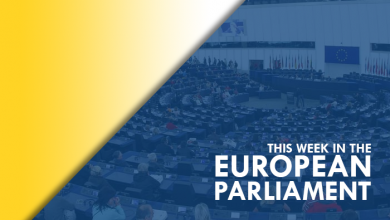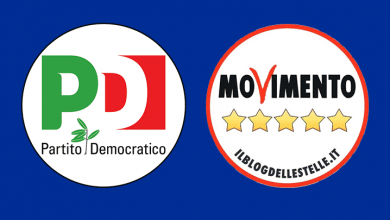The case for Switzerland as a post-Brexit model for the UK
UK's place in the world economy after Brexit is still to be found: what are the available options?

The latest European Council meeting on October 17 has left the 27 leaders unsatisfied with the progress – or the lack thereof – in Brexit negotiations. Despite having been less confrontational than the previous summit, where Prime Minister Theresa May urged her peers to respect the UK and its demands, no significant leaps forward have been made. The current impasse is mostly due to the inextricable question of the “hard border” that would come into place between the Republic of Ireland and Northern Ireland, reminiscent of the past frictions between unionists and independentists.
The European Parliament’s Brexit coordinator Guy Verhofstadt recently stated that there could be no such thing as progress in the negotiations until a solution is found on this matter (The Guardian 2018). A “hard Brexit” and the consequent introduction of custom checks would damage the Irish economy, which for both geographical and cultural reasons is deeply integrated with the UK. The Kingdom’s investments in its small neighbour accounted for 30% of the Irish GDP in 2013 and multiple financial institutions operate transnationally between London and Dublin (Global Counsel 2015, 33). However, extremely low taxes – the corporate tax rate is 12,5% – and lax regulations are attracting several financial institutions especially from London, which are likely to contribute to the 6,7% GDP projected growth for this year (Foreign Policy 2018).

Although not all economists agree on the estimates of UK’s economic performance after Brexit, especially in the long-term (Begg & Mushövel 2015, 5), it is widely accepted that the event itself triggered the sudden depreciation of the sterling compared to the stronger Euro (Financial Times 2017) and general distrust of investors towards the British market; this reaction is above all a result of stagnating negotiations and uncertainty on their outcome. Infact, UK’s place in world economy after Brexit is still to be found, and most certainly will not be in the single European market, as declared by Prime Minister Theresa May in her 12-point plan (The Telegraph 2017).
Debates on whether the UK would seek affiliation to the EU in a looser way or completely isolate itself from the continent after its possible exit have been going on for years, even before the referendum was ever conceived by British policymakers.
The European Economic Area
The European economic framework comprises multiple “layers” of regional economic spaces with different degrees of integration. The Eurozone represents the most integrated area; its 19 members are part of a customs union, where a common tariff is set for goods entering the economic area (Baldwin & Wyplosz 2015, 290), the single market, which embodies the 4 freedoms – free movement of goods, capital, services and labour – and the monetary union, which provides the members with a common currency primarily aimed at keeping prices stable. Together with the remaining 11 non-euro member states, including the UK, these states constitute the European Union.

The European Free Trade Association (EFTA), instead, comprises Switzerland, Norway, Iceland and Liechtenstein. These countries are not part of the customs union, and the latter three have access to the single market since the 1994 Agreement on the European Economic Area. Their economic contribution to the European Union budget is nonetheless of a lower amount compared to the EU member states; moreover, beside having an independent trade policy, they are exempted from participating to what is commonly known as Political Union and can autonomously determine the Value Added Tax (VAT) level (Schwok & Najy 2013).
Switzerland has been granted a particular economic status in 1994 which gives it the possibility to reach bilateral agreements with the EU and consequently retain more economic sovereignty. These agreements have been divided into two groups, Bilateral I and Bilateral II. The contract regarding Bilateral I between the EU and Switzerland contains a so called “Guillotine Clause”, that would make all the agreements null if Switzerland had to fail to implement one or more (European Parliament 2010, 11).
Where to look after Brexit?
The Leave campaigners’ main issues with the European Union are mostly of economic nature. The main one is the overall budget contribution. With 0.5% of its GDP sent to Brussels (Center for European Reform 2016, 38), UK is the largest contributor to the EU budget after Germany, making it one of the large net contributors.
The second complaint concerns the Common Agricultural Policy (CAP), which the United Kingdom has always been opposed to since its inception and which the country is helping fund through its budget. The CAP is responsible for raising the food prices for British consumers, but it also helps the poorest rural areas such as Cornwall by subsidizing local farmers (ibid. 16).

The third main reason can be found in the major influx of EU citizens the UK experienced in the last decades. This immigration wave, blamed for the depression of domestic wages (Woodford 2016), triggered a harsh reaction from the most conservative parts of British society and contributed to the results of the 2016 referendum.
Considering the above mentioned driving issues behind Brexit and the latest declarations by Prime Minister May to not let a second Brexit referendum happen, it now looks like a provision deal may have been reached, unless the current government loses its majority in the Parliament. While the details of the deal have not been shared yet, it is my opinion that this will entail a compromise of some sort on the free movement of people, the most sensitive topic for Irish citizens and the Remain campaigners, who still constitute a large minority – or could now constitute the new majority (Politico 2018).
As for the possible scenarios, a renowned standard membership to the EFTA as that of Norway would imply “regulations without representation” (CER 2016, 40) and would leave the UK bound to most of the single market constraints, angering the anti-EU base. Moreover, its budget contribution to the EU would only fall by 9% (Ibid. 110). A normal free trade agreement, like the Comprehensive Economic and Trade Agreement (CETA) with Canada, would not grant the UK sufficient access to the single market. Switzerland’s case offers an interesting example for a middle ground scenario that would neither leave Britain completely isolated nor obliged to follow most EU regulations.
The case for imitating Switzerland
In case of a deal with the EU, an arrangement similar to the one currently in force with Switzerland could help mitigate – but not eliminate – Brexit’s negative long-term economic effects in the UK and would represent a compromise likely to be welcomed by those who most fear a no-deal scenario. First, it must be noted that the UK’s contribution to the budget would fall by 55% (ibid.). Secondly, the British government would be able to negotiate independently again with third-party countries (Schwok & Najy 2013). To this regard, it should be stressed that together with the other EFTA countries, Switzerland was faster than the EU to sign trade agreements with Canada, Ukraine and South Korea, indicating higher flexibility on this matter (ibid.).
In order to extend the space for maneuver and placate the pro-EU population, the government could also try to obtain favourable economic agreements with the European Union by announcing a referendum on Schengen membership. Switzerland has currently signed multiple bilateral agreements concerning different matters (Clements 2014, 39) allowing for a non-automatic reception of EU legislation for most sectors. This aspect would be of great value for the UK, which has always felt uncomfortable with accepting the exclusive competence of the EU governance bodies on certain policies.

Moreover, under a Swiss model arrangement the European Court of Justice, historically disliked by the UK for its legal interventionist attitude, would not to have any say in disputes between Great Britain in the EU. It is of note that only a few disputes have been occurred between Switzerland and the EU in the last 20 years of bilateral relationship (Schwok & Najy 2018, 8). Finally, as we are talking of a Swiss model, the way in which the bilateral agreements would be carried out would not necessarily have to follow the same tortuous path. Considering the established participation of the UK in the single market, the respective negotiators would not have to start from scratch.
However, while a Swiss kind of arrangement seems the most convenient option for the UK, British negotiators have to face a few obstacles to enjoy its benefits. First, in the last years the EU has showed dissatisfaction over the bilateral framework and called for Switzerland to integrate the acquis communitaire in greater measure and in a more uniform way (Schwok & Najy 2013). Second, Britain might be pushed to join the EFTA to secure a Switzerland-like arrangement and maintain trade agreements with its members; With regards to the UK’s membership, despite the favourable position laid out recently by the Norwegian Prime Minister Erna Solberg (The Independent 2018), this could entail a long and difficult negotiation.
An earlier version of this article was originally written for the University of Leiden.
Bibliography
Baldwin, R. & Wyplosz, C. 2015. The economics of European integration. McGraw-Hill Education.
Begg, I. & Mushöve, F. 2016. The economic impact of Brexit: jobs, growth and public finances. London School of Economics.
Center for European Reform (CER). 2016. The economic consequences of leaving the EU.
Clements, B. 2014. Britain Outside the European Union. Institute of Economic Affairs.
European Parliament. 2010. Internal market beyond EU: EEA and Switzerland. Directorate-General for internal policies.
Financial Times. 2017. Brexit is an obvious culprit for a weak pound.
Foreign Policy. 2018. Britain Isn’t Just Losing Brexit. Europe Is Winning It.
Global Counsel. 2015. Brexit: the impact on the UK and the EU.
Politico. 2018. UK support for Remain jumps in EU survey.
Schwok R. & Najy, C. 2018. Evidence presented at the House of Commons, exiting the EU Committee. UK Parliament.
Schwok R. & Najy, C. 2013. UK returning to EFTA: Divorcee at 40 and going back to mom and dad?. Written evidence at the Foreign Affairs Committee, UK Parliament.
The Guardian. 2018. May was first to raise option of transition extension, says EU
The Independent. 2018. Brexit: Norway drops objection to Britain staying in single market via European Economic Area.
The Telegraph. 2016. Theresa May confirms Britain will leave Single Market as she sets out 12-point Brexit plan.
Woodford. 2016. The Economic Impact of Brexit. Working Paper.


![Photo of [OPINION] A Europe of Regions Makes no Sense](https://mycountryeurope.com/wp-content/uploads/2018/04/ggg-390x220.jpg)


